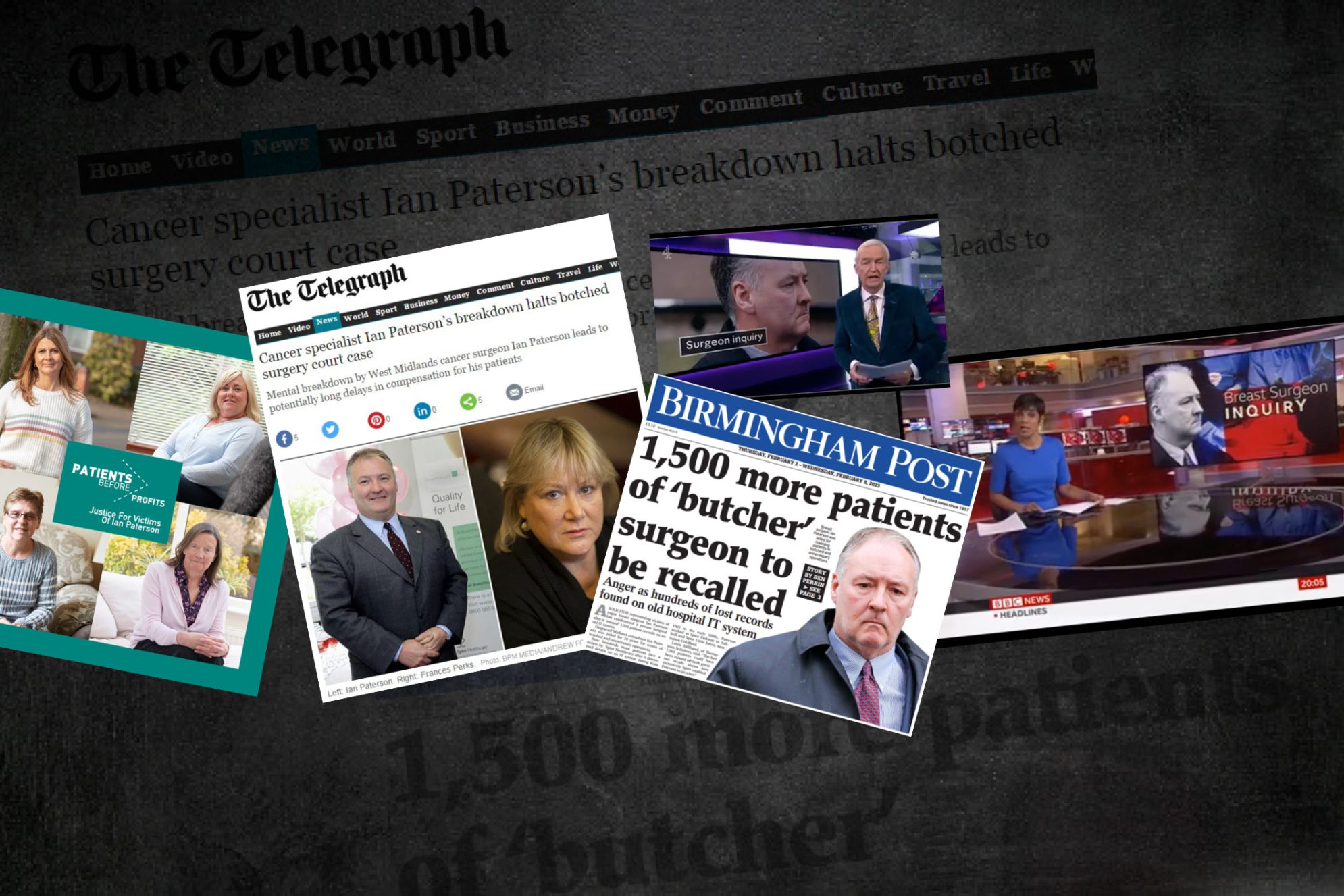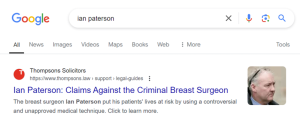
Marketing for Medical Negligence Legal Services
Marketing for medical negligence cases requires tact. In such a sensitive area of law, communications must be compassionate and informative as well as delivered through the right channels.
This guide from our team of legal marketing specialists – who provided a fully-outsourced marketing service for Thompsons Solicitors – outlines key marketing tips to help you engage target audiences and build credibility and trust.
Crafting your message
Messaging should focus on two main objectives:
1. Raising awareness
Raising awareness is the first step. Potential clients may not appreciate what constitutes ‘negligence’ or know their legal rights. Your messaging needs to both educate those who are already aware that they have a problem (for example, as recipients of a recall letter) and inform those who are not.
Case Study: We worked with Thompsons Solicitors on a number of medical negligence group action cases, the most prominent being Birmingham-based breast surgeon Ian Paterson. We positioned Thompsons as the ‘go to’ firm for Paterson claims. They were appointed lead litigator and were successful in claims for 650 of his victims.
2. Establishing trust
To stand out in a competitive market, your messaging must establish authority and trust. This is a distressing and confusing time for those affected – potential clients need to know they can rely on you to hold the negligent party to account.
- Promote your experience: Highlight your firm’s expertise, emphasising successful previous outcomes to build confidence among potential clients.
- Leverage client wins: Once you begin representing victims in a case, their stories – preferably told in their own words – become your most powerful marketing tool.
Choosing your channels
Once your messages have been crafted, identifying the best channels for reaching potential clients is key. There are many options available, and it is generally wise to take a multi-channel to ensure you reach the target audience.
Search Engine Optimisation (SEO)
Search engine optimisation is a powerful method of delivering your message to those actively seeking information about a topic. By creating compelling content that is also optimised for search, your firm can appear high in relevant search results.
SEO is a cost-effective strategy for driving relevant traffic to your website over the medium to long term. However, it’s worth bearing in mind that it can take weeks or even months for your website to reach the top of search results – especially if you are trying to rank for particularly competitive search terms.
Case study: When we worked with Thompsons Solicitors on Paterson claims, we developed an in-depth guide to the case for their website. By optimising the guide for search, we were able to achieve the top position in search results for ‘Ian Paterson’, driving tens of thousands of visitors to the firm’s website and generating a large number of enquiries from prospective clients.

Search advertising
When you want to drive traffic to your website quickly – for example, to take advantage of a breaking story – running search ads is an effective tactic. A paid search campaign allows you to appear at the top of results and start capturing relevant interest instantly.
Social media ads
While SEO and search ads reach those who are already seeking information, it is also important that your content is seen by a wider audience who may not even realise that they have a case. This is where using social media comes into play. You may already reach a large audience through the platforms you currently use, but advertising on social media can expand this considerably and allow you to target specific localities and demographic groups.
Media relations
Print and broadcast media continue to reach huge audiences while also influencing the online agenda. When a major medical negligence story is breaking – such as the recent news that Great Ormond Street is reviewing hundreds of former patients of ex-surgeon Yaser Jabbar – you need to move quickly to:
- Post your comments online and issue them to the media.
- Arrange for media-trained medical negligence specialists to be available for interview.
- Offer case studies, either of clients affected by the breaking story or of similar negligence scandals.
It is important that media relations activity is consistent to build relationships with journalists that will make them receptive to your stories and ensure that you become the go-to law firm whenever medical negligence in the news.
Taking an integrated, multi-channel approach allows you to get maximum value from the content you generate and increase your chances of reaching your target audience.
If you’re looking to secure more clinical negligence work, Freshwater can help.
Contact us to schedule a free consultation with our team of legal marketing specialists.
